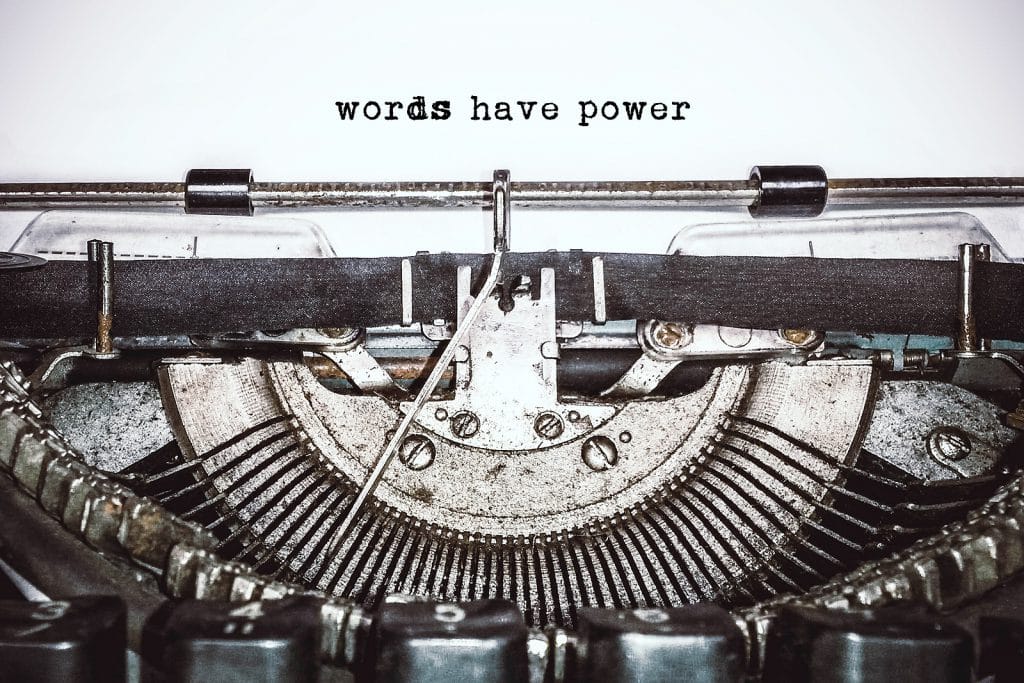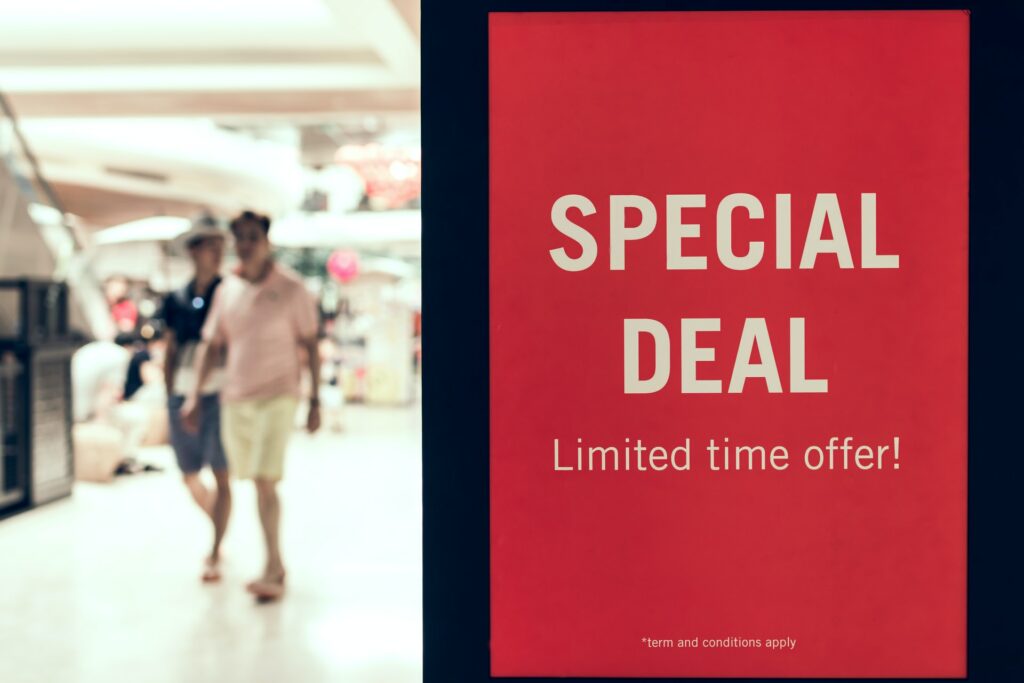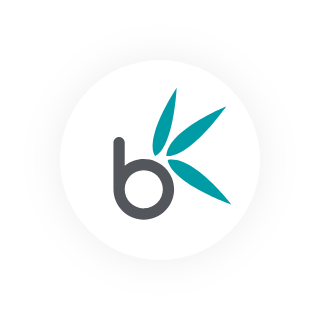Power Words that Pack a Punch in Copywriting
When looking for a sale, it’s not enough to have amazing products or efficient services that make your customers’ lives easier. Power words can be a powerful part of your arsenal, persuading potential customers to convert.

What are power words?
Power words are words that copywriters and marketers use to elicit a psychological response from their audience. They’re considered a simple yet powerful marketing technique (hence the name) because they’re designed to transform dull, lifeless copy into headlines, loglines and sales pitches that compel readers to take action.
Whether you’re blogging, writing direct response copy or conducting a sales pitch, your audience is more likely to listen to you just from their inclusion.

The types of power words
There are three types of power words, those that entice, those that elicit emotion, or those that help a reader embark on a sensory experience.
Enticing power words
These are the words that will make your audiences irrationally drawn to the idea of taking action and, with any luck, they will take that action right away. Enticing power words are the kinds of words that compel users to do what you want them to do, no matter what. Here’s a small example list of power words and phrases that do this:
- New (it translates to “better” in people’s minds)
- Free (people often take action more easily if they’re getting something free as well)
- Because (sometimes all it takes for copy to be effective is a solid reason)
- How To (practical knowledge compels people to take action ‒ it’s also great for sharing on social media)
One thing to remember about the “How To” is that it will only work if you deliver on the promise in your copy. For example, if you create a guide that tells you how to bake chocolate chip muffins, your audience will be expecting to learn this by the end of the article. If this isn’t included and they don’t, they won’t share the content, they’ll leave the page, and they’ll be less likely to buy anything from you, or even trust you.
Emotional power words
You might be able to guess from the name what these power words are supposed to do. Emotional words are a kind of power word designed to bring about a strong emotion, and that emotion then causes a reader to do something. Whether it’s anger or awe driving them to share a blog post or the fear of missing out or a sense of urgency causing them to click through and buy a product, it all happens because you’ve attached a specific emotion to your content.
Sensory power words
Sensory power words are those little pieces of content that ask your reader to imagine or picture a particular scenario, while tapping into one or even all five of their senses. For instance, you might talk about the aroma of strong, hot coffee lifting you from the heavy drowsiness of sleep in the early morning. Or the startling blast of a car backfiring. Or the sweet, crisp skin of a big red apple as your teeth sink into it.
How do you use power words?
There are a lot of different ways that you can use power words. How you decide to use them for your own content will all depend on what you’re looking for as a response from your audience. Want them to purchase a product? Sign up for a newsletter? Contact you directly? Putting just the right power words to any of these can persuade them to do it in no time at all!
Single power words can do a lot, but when you put them together in groups, they’re often even better. We’d call these “power phrases”, and you’ll realise how much they’re used in marketing (as well as SEO and copywriting in general) when you notice they’re little terms and expressions like “limited offer” and “free delivery”. Hidden in plain sight, right?

Where can you use power words?
Technically speaking, power words are everywhere. You’ll already have read over at least half a dozen of them before even getting to this point on the page! But you’re probably interested in finding out where they’re most common in SEO and copywriting for your business. You’ll always find power words in:
- Ads
- Headlines
- Email marketing (especially subject lines ‒ to increase those all-important open rates)
- Landing pages (sales pages, pricing pages, etc., to persuade people to become purchasers)
- Blogging and social media (it attracts attention; the two were practically made for each other)

Why are power words important for content?
The first and most obvious benefit and reason you should be putting power words in your titles, headings, and content is that it will get you higher click-through rates (CTRs). This is both in the search engine results pages (SERPs) and throughout your website, as people decide to explore your web pages further. This benefit only grows with your audience, too, as it means more people clicking through and reading your content.
Power words and phrases also offer a few other benefits that might help you to retain a customer base:
- They help to build trust and credibility, giving people a reason to believe what you’re telling them
- They inspire people to act, which not only works for you but is also likely to make them feel good
- They make people feel important, especially when using words like “exclusive” ‒ people love to feel like they’re in on something that very few people know about
Power words and SEO
Search engine optimisation, which is usually shortened to SEO, relies on the inclusion of power words through copywriting. It’s all well and good making sure your web pages are showing up in the search results, but this won’t mean much if your target audience isn’t clicking through to the website.
Search engines reward websites that gain organic traffic (people entering websites by clicking through free links instead of Ads). If a web page, or even several web pages, are consistently visited and engaged with for a good length of time then Google’s algorithm will assume that audiences are getting something valuable from the content. This helps the search engine to decide where the pages should appear in the rankings when their related keywords are searched for. The better the pages are at satisfying their audience’s search needs, the more valuable the content, and the higher they’ll be when prospective customers go to look for products, services or even answers to questions online.
But none of this will happen if you don’t encourage people to click on the link and be driven into your website as traffic. This is, of course, where SEO power words come in. By adding them into your meta titles and descriptions (the links and descriptions that show up in SERPs), people are more likely to want to visit your website. By convincing them to click through, you’ve won half the battle ‒ all you have to do then is make sure your content gives the people what they want.
What you need to watch out for
Everything we’ve already talked about above can have an incredible impact on the success of your copy, whether you’re writing blog posts, landing pages, or even creating the perfect sales pitch. But when you’re writing online content, you always have to be careful to balance what you’re promising and what you’re delivering.
Simply put, no one likes false advertising. People will click the Back button and leave your pages if they find what you’ve stated in your title and heading isn’t the same as the actual product, service, or information offered in the body of the content. If they do this quickly, it’s called a “bounce”. It’s also often called pogo-sticking, and the more people do this the worse it is for your website.

Just as Google measures your CTR, it also measures user engagement. If it finds that users are frequently clicking back off your pages after apparently visiting your website, the algorithm will assume that your content doesn’t have that much value and you’ll be pushed down the search results. Perhaps even to another page, where audiences are less likely to go looking for you.
The moral of the story? Tell the truth! Make sure your titles and headings are backed by what you’re offering in your content, and that the power words you’re using aren’t going overboard in what you’re trying to sell.
Why do power words work in the first place?
This is an interesting question that goes more into the psychological aspects of power words and what they do to people. In his book Cashvertising, Dr Eric Whitman noted that there are seventeen basic desires common to almost every human being. Eight of these are fundamental, meaning we’re born with them, and nine of them are learned, meaning that we’re taught to want them by the society we grow up in.
The fundamental human desires are:
- Survival, enjoyment of life, and its extension
- Enjoyment of food and beverages
- Freedom from pain, fear, and danger
- Sexual companionship
- Comfortable living conditions
- To be superior, or to “keep up with the Joneses” (to show that you have it as good as other people)
- Care and protection of loved ones
- Social approval
The learned human desires are:
- To be informed
- Curiosity
- Cleanliness of body and our surroundings
- Efficiency
- Convenience
- Dependability and quality
- Expression of beauty and style
- Economy or profit
- Bargains
All of these desires, whether together or separate, are the reason power words work. If they’re used correctly, any power word should be able to tap into them (some of them may even be pain points for your customers) and trigger a response as a result. For your business, this will hopefully mean more traffic, better conversion rates, and more leads generated.
A power words list
While it would be an almost impossible task to list all of the power words in the entire world, we can get you started with a list of some of the words that could soon be spicing up your titles, headings, and overall copy. No matter if you’re blogging, preparing a sales pitch, or taking the next step forward with properly organised corporate content, you’ll find audiences drawn to you when you use these:
- Absolute
- Absurd
- Accuse
- Advanced
- Affordable
- Alluring
- Amazing
- Assault
- Astonishing
- Astounding
- Authentic
- Authority
- Awe-inspiring
- Awesome
- Awe-struck
- Backed
- Bargain
- Best-Selling
- Better
- Beware
- Bonus
- Breaking
- Breathtaking
- Brilliant
- Budget
- Buffer
- Buzz
- Captivate
- Catapult
- Caution
- Charming
- Cheap
- Cheat-Sheet
- Chic
- Classified
- Clever
- Comfort
- Compelling
- Complete
- Comprehensive
- Confidential
- Convert
- Cryptic
- Daring
- Dazzling
- Defying
- Delicious
- Delight
- Deluxe
- Detailed
- Diagnosed
- Discover
- Divulge
- Document
- Dominating
- Double
- Dramatic
- Easy
- Effective
- Efficient
- Effortless
- Elite
- Emergency
- Enjoyment
- Enormous
- Envy
- Epic
- Essential
- Ethical
- Excess
- Exciting
- Exclusive
- Expensive
- Expert
- Exquisite
- Extraordinary
- Eye-catching
- Fantastic
- Fascinating
- Fashionable
- Fierce
- Final
- First
- Forever
- Formula
- Free
- Frenzied
- Fulfil
- Fundamental
- Funniest
- Genius
- Genuine
- Gigantic
- Glamorous
- Gorgeous
- Greatness
- Growth
- Guaranteed
- Guilt-free
- Happiness
- Healthy
- Heartwarming
- Hidden
- Highest
- High-quality
- Hoax
- Honest
- Huge
- Hurry
- Imagine
- Immediate
- Imposing
- Impressive
- Improved
- Increased
- Incredible
- Indulgence
- Influence
- Insider
- Inspirational
- Inspire
- Instantly
- Insurance
- Intensity
- Intriguing
- Jaw-dropping
- Jeopardy
- Lavish
- Legitimate
- Lifetime
- Limited
- Little-known
- Lowest
- Lucrative
- Magnificent
- Massive
- Master
- Masterclass
- Mesmerising
- Mind-blowing
- Miraculous
- Motivate
- Mouth-watering
- New
- Now
- Objectively
- Official
- Off-limits
- On-Demand
- One-of-a-kind
- Only
- Outrageous
- Outstanding
- Overnight
- Painless
- Passionate
- Phenomenal
- Pioneering
- Popular
- Positive
- Potential
- Power
- Powerful
- Premium
- Prestige
- Priceless
- Professional
- Profits
- Profound
- Promise
- Promotion
- Prosperity
- Protect
- Proven
- Quota
- Rare
- Recession
- Release
- Reliable
- Remarkable
- Report
- Results
- Reveal
- Riveting
- Sabotage
- Sacred
- Safe
- Safety
- Sales
- Savvy
- Scarce
- Secret
- Sensational
- Seriously
- Show-stopping
- Signs
- Sneak-Peek
- Sneaky
- Solution
- Special
- Spellbinding
- Steal
- Step-by-Step
- Stimulating
- Straightforward
- Strategy
- Striking
- Struggle
- Studies
- Stunning
- Stylish
- Sublime
- Surging
- Surprise
- Survive
- Sway
- Temporary
- Tempting
- Terrifying
- Tested
- Thrilling
- Top Secret
- Transform
- Treat
- Trend
- Tricks
- Triple
- Triumph
- Truth
- Unbelievable
- Uncontrollable
- Unconventional
- Uncovered
- Undeniable
- Undercover
- Underused
- Undisclosed
- Unexpected
- Unforgettable
- Unique
- Unleashed
- Unlimited
- Unorthodox
- Unseen
- Unstoppable
- Unsurpassed
- Untapped
- Unusual
- Validate
- Wild
- Wonderful
- Wondrous
Want to find out more?
We’re ready and waiting to help if you do! Bamboo Nine’s very own team of SEO experts can take you through the answers to any questions you might have about power words and what they’ll do for your content. We’ll even be prepared to help you sign your business up for our services ‒ all you have to do is give us a call or send us an email today.


